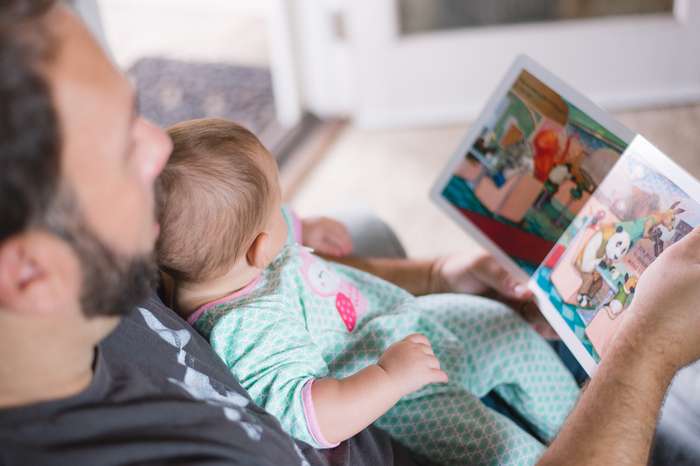When a baby isn’t burping, it can mean that they are uncomfortable and have a lot of gas built up. In this article, we will discuss some tips on how to burp a newborn that won’t burp. Sometimes, all it takes is a little patience and perseverance!

Does My Baby Need To Burp?
Infants are said to need to burp to eliminate extra gas from their stomachs. According to this idea, healthy infants don’t know how to burp on their own, and if we don’t assist them, they may become bloated or irritable.
What Would Happen If You Didn’t Burp Your Infant?
If your baby doesn’t burp, he’ll be gassy and uncomfortable, irritable and fussy. He will also provide all of the indicators that your child needs to burp.
The least appealing option if your newborn does not burp is that any trapped air will be forced into the stomach.
Excess gas in the stomach and lower down in the abdomen, also known as ‘the baby witching hour‘, can be a cause of colic and evening fussiness.
When Should You Burp Your baby?
Burping your baby usually follows after they drink 1-3 ounces of formula, or while changing breasts if you are breastfeeding. They also propose that you burp them again at the end of the feeding.
How To Burp Your Baby Normally?
The three most frequent postures that moms utilize are as follows.
- Place your baby’s chin on your shoulder and hold it with one hand while patting it with the other. With one hand, support the baby and pat it with the other.
- Sit your child on your lap, with his back to you. Gently cup his chin with one hand and press the palm of the other hand against his chest. Pinch or massage his back using your other hand.
- Raise the baby’s head with one hand and make sure it’s higher than the rest of the body with the other. Pat with the fingers of your other hand.
How To Burp A Newborn That Won’t Burp?
1. Bounce Or Pat Your Baby To Comfort Him
Patting your baby’s back can help move the air bubbles up, but it isn’t always enough. If he doesn’t burp, try patting him more firmly with your whole hand rather than light pats. Another option is to tap his bottom. Many parents claim that this is the only method to elicit a burp from their babies.

2. Try Different Burping Positions
- Hold your baby well above your shoulder. One problem that parents have with burping over the shoulder is that they don’t hold the kid high enough. Not only should his head reach over your shoulder, but also his belly should rest on your shoulder. Then, lean back far enough, so he’s at a modest slope.
- Carry him in a football hold.
- If you are wondering how to burp a newborn that won’t burp after feeding, then try this position. Sit your baby upright. Lean him slightly forward and support his chest and head with one hand, placing it under his chin and behind his head.
3. Do Burping Exercises
If your baby is still gassy after several tries, he may have a blockage in one of his airways. These are extremely tiny bubbles that dissipate quickly. Your child has some sort of respiratory problem if he is continuously gassy and unruly.
- Rotations: Support your baby’s chest and head as you would if he were burping him, with one hand on his back and the other on his neck. Then, rotate his upper body clockwise slowly before repeating the process in reverse.
- To begin, lean him forward for a few seconds before returning to an upright posture. When he’s halfway into his stride, lean him back ever so slightly as if you’re going to put him down.
- Elbow to knee: Lie him down on his back. Then, with one hand, take hold of his right elbow and the other knee. They should move near to each other above his chest gradually as if about to touch. Repeat the process for his opposite limbs instead.
Signs That Baby Needs To Burp
- He’s fussy or crying after a meal.
- He stops eating frequently while breastfeeding or taking a bottle.
- Crying is a sign that your baby is uncomfortable and may be trying to tell you that he needs to burp.
How Long Should You Try Burping Your Baby?
If your infant doesn’t burp after a few minutes, it’s probably not yet ready to come up. For 5 minutes, lay the baby down in their crib or change their diaper before trying again.
Prevent Excess Gas In Babies
For Breastfed Babies
- Make sure their latch is correct.
- To find out if your baby’s tummy is being affected by what you eat and drink, pay attention to what you’re eating and drinking.
- You could spend some time trying various breastfeeding postures until you discover the one that works best for both of you.
For Bottle-fed Babies
- When bottle-feeding lying down, babies may swallow too quickly and end up overfeeding. Instead, allow your infant to sit up while feeding him.
- Examine the milk flow. When a baby takes in too much air, it’s most likely due to an excessive milk flow rate. To avoid this, try using a wide-mouth, slower milk feeder nipple.
- To get a relaxing posture, use a cushion or a nursing pillow.

Frequently Asked Questions
Q1: Can baby choke if not burped?
Ans: No chance of spitting up or vomiting when your baby is lying flat on the back might lead to asphyxiation. Back sleeping is the most critical of the safe sleep tips to reduce the chance of SIDS. Any fluid may be swallowed or end up on the bed if your baby doesn’t burp and spits up or vomits while resting.
Q2: Baby won’t burp but spits up. Does spit-up count as a burp?
Ans: Some trapped wind may cause your baby to spit up, and a little milk comes with the air bubble as it is released. However, newborns can only spit up because the valve between the stomach and esophagus is immature – instead of just allowing food to enter the stomach – it opens when it shouldn’t.
Q3: What to do when the baby won’t burp and get hiccups?
Ans: If your baby has hiccups, let them ride it out. Hiccups are caused by spasms in the diaphragm, and they’re usually harmless. They may be uncomfortable for your baby, but they’ll go away on their own.
Q4: Baby won’t burp after 20 minutes. What to do?
Ans: Sometimes, babies need a little time to calm down before they’ll let out a burp. If the baby falls asleep, that’s fine. When they wake up, try burping them again.
Q5: How much should a newborn burp?
Ans: One burp may not be enough, but it all depends on your baby’s level of gassiness when feeding. Plus, not all burps are created equal. If you can manage, try to get three burps without causing excessive stress for your child.
Q6: What should I try next if my baby’s still struggling with gas?
Ans: Over-the-counter gas drops and gripe water, for example, should be avoided. Speak with your baby’s pediatrician—they may give simethicone or another similar substance to make your infant more comfortable.
Q7: Is it okay to put the baby to sleep without burping?
Ans: No. If you don’t, they may wake up crying due to discomfort from the trapped gas.
Q8: How to burp a sleeping baby?
Ans: You may just leave your baby asleep if you want to burp them. Babies can burp while sleeping, which is not necessary or desirable. It’s feasible to burp a sleeping infant without waking them first.
Conclusion
Burping your baby after every feeding is the best way to prevent gas buildup. But if your baby is having trouble releasing the air, don’t worry—there are a few things you can try. It may take some time, but eventually, you’ll get the hang of it.







